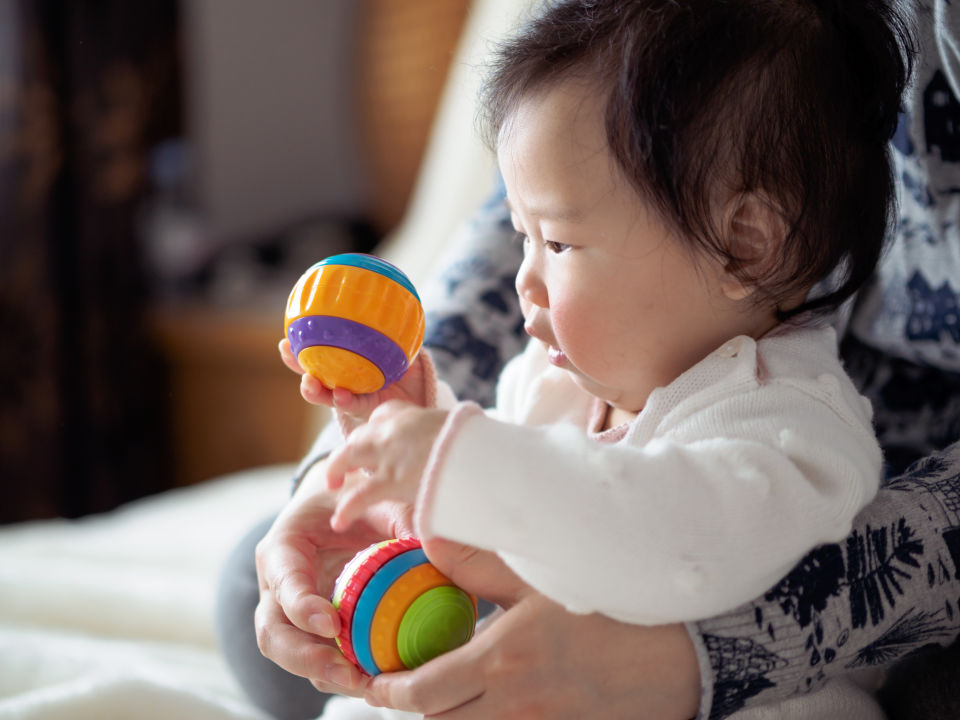Here we debunk common misunderstandings about babies’ brains and brain development. Whether you’ve heard them or you’ve thought them, read more to find out the real truth.

New parents are often flooded with information about how to raise their child, and it can become overwhelming to try and keep the facts straight. Luckily, when it comes to your baby’s brain development, the steps are easy to remember – and simple. All it takes is a little “brain exercise” by talking, reading, and singing. Do these simple activities early and often to help build connections in your baby’s brain that will have positive and powerful effects on your child’s life forever.
Here we debunk three common myths to help get your baby on the right path for maximum brain development.
The Truth: Even though your tiny baby can’t respond to you verbally just yet, she’s listening to every word you say, and her brain is growing rapidly. Connections within the brain, also called synapses, ultimately shape how your child learns, thinks, and grows, and they start forming at birth. So go ahead, start chatting about your day, count those tiny toes, read a book, or sing a song. The social-emotional connection you make when you touch and bond with your baby helps your baby’s brain grow. Your baby is doing more than listening; she’s counting on you to help expand her already curious mind.
The Truth: Daily experiences and verbal engagement determine how your baby’s brain cells will form and connect to one another. When a baby doesn’t receive simple yet important early experiences – like being spoken to, read to, and sung to early and often – it can have a negative effect on the development of connections in the brain. In fact, studies show that babies who experience more of these positive types of interactions ultimately possess larger vocabularies, do better in school, graduate from high school, and even have a more successful future. The time you spend engaging with your child also helps build the bond between you two.
The Truth: There’s no evidence that pricey “educational” toys make a difference in brain development. In fact, they can often overstimulate a child, which won’t make your child any smarter. While it’s great to have a variety of interesting, colorful playthings at home, the very best “toys” for your baby are you and your voice. Talking, reading, and singing to your baby are the most effective activities you can do with your child. They don’t cost a thing – and they don’t take up any space in the toy box! Put your baby in a carrier or stroller and take a walk. Point out squirrels, cars, and trees along the way. Sort laundry by colors and make shapes out of folding towels. Clang kitchen utensils together to make “music,” and sing a song as you set the table for dinner. Simple, everyday moments like these are all brain-building opportunities.
Neurons in the brain connect by the billions within the first 100 days of life when a newborn is engaged by a loving parent through talking, reading, and singing.






